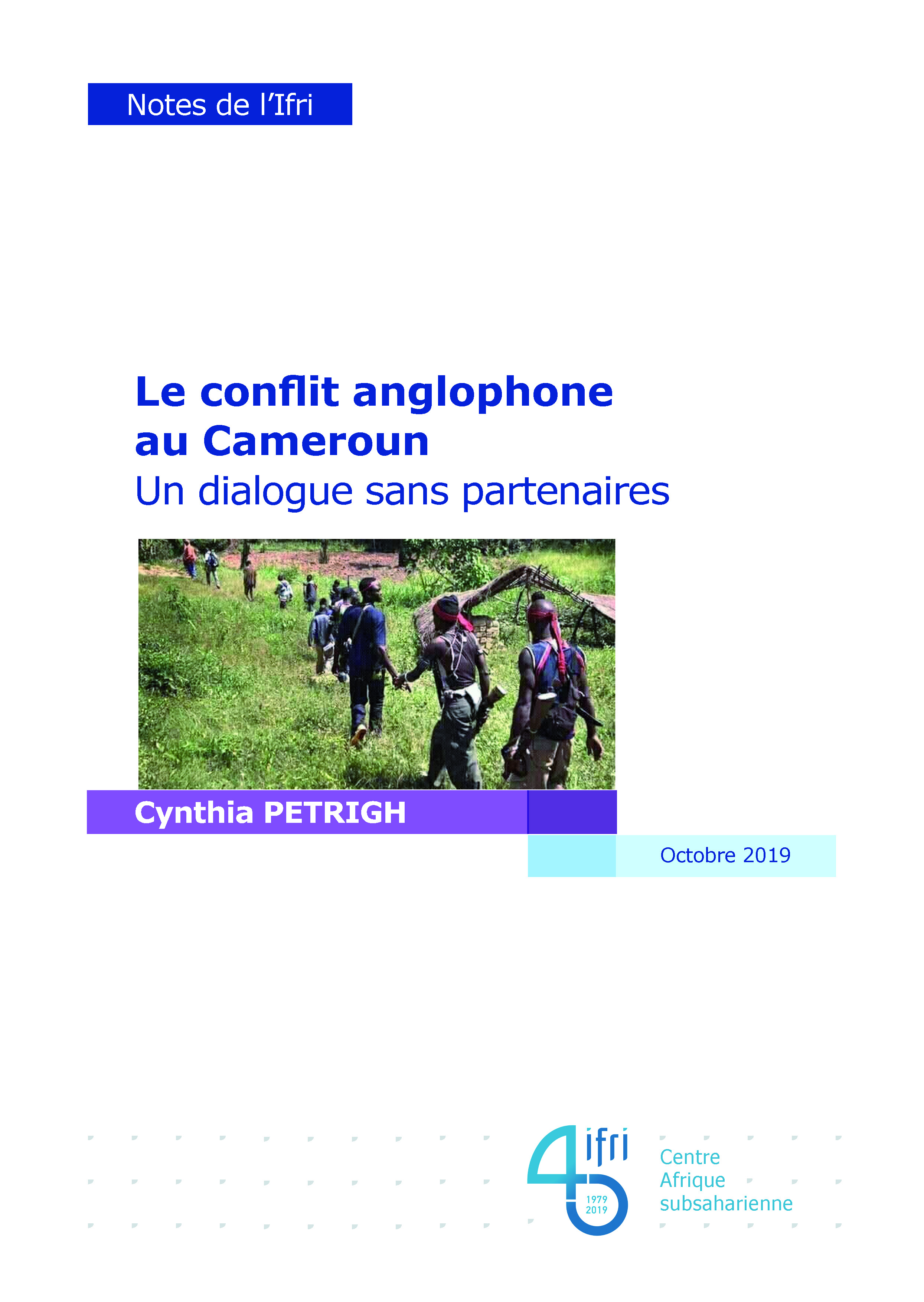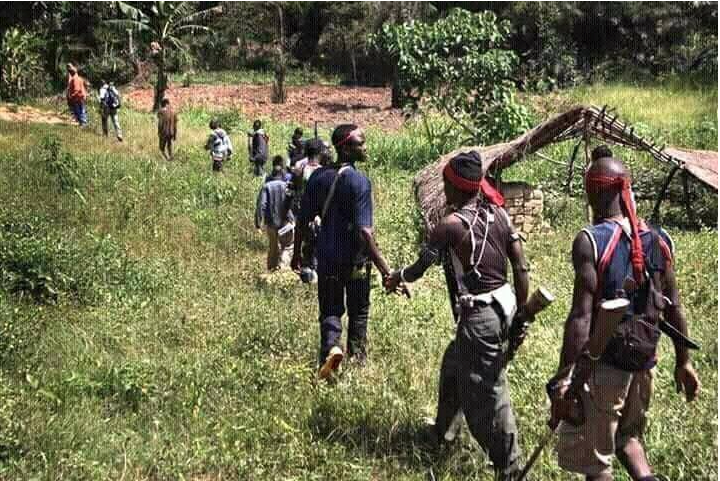Le conflit anglophone au Cameroun. Un dialogue sans partenaires

Le soutien au régime Biya a été imposé pendant plusieurs décennies grâce à l’accord tacite selon lequel les citoyens échangeaient leurs libertés civiques contre la promesse de la paix civile, de l’unité et de l’émergence.

Ces mythes sont aujourd’hui mis en péril par la mauvaise gestion de la crise anglophone, initiée par des revendications d’ordre social battues en brèche par une répression brutale. La crise a depuis muté en conflit armé et les groupes armés ambazoniens, largement formés d’amateurs peu équipés au départ, se radicalisent et étendent leur contrôle du territoire dans les provinces du Nord-Ouest et du Sud-Ouest. Dans ce contexte, la brutalité des forces armées, la haine ethnique et un sérieux coup porté à une économie déjà au ralenti ont ouvert les champs de la contestation au niveau national, et posent le problème de la mauvaise gouvernance, du régime vieillissant et de la haine inter-ethnique. Des initiatives locales ou internationales en faveur du dialogue et de la paix, y compris par des leaders religieux, des mouvements de femmes et la Suisse, ont trouvé à ce jour peu d’écho parmi les belligérants. Alors qu’une victoire militaire de Yaoundé paraît de plus en plus illusoire, les élites occupées par la bataille de l’après-Biya vont-elles saisir la main tendue qui permettrait d’éviter la guerre civile ?

Available in:
Regions and themes
Share
Download the full analysis
This page contains only a summary of our work. If you would like to have access to all the information from our research on the subject, you can download the full version in PDF format.
Le conflit anglophone au Cameroun. Un dialogue sans partenaires
Related centers and programs
Discover our other research centers and programsFind out more
Discover all our analysesGabon: Has an — Almost — Exemplary Transition Produced a New Political Model?
In two rounds of voting, on September 27 and October 11, 2025, the citizens of Gabon elected the members of both their local councils and the new national assembly. This marked almost the final stage of political transition, little more than two years after the coup d’état that had overthrown the more than five decades old dynastic regime of the Bongos — Omar, the father, who died in office in 2009, and then his son Ali, who is now in exile.
Claiming "The People": Youth Booms, Ailing Authoritarians and "Populist" Politics in Kenya, Uganda, and Tanzania
This study analyses the emergence of so-called “populist” political tendencies in three East African countries: Kenya, Uganda and Tanzania. It builds its analysis on a wider discussion of the term “populism”, its use and applicability in (eastern) African settings before going on to examine the drivers of three cases of populism: William Ruto’s 2022 election victory in Kenya and the “Hustler Nation”; Bobi Wine’s opposition to Yoweri Museveni in Uganda; and John Magufuli highly personal style of government in Tanzania.
The Contradictory Impacts of Western Sanctions on Economic Relations between Russia and Sub-Saharan Africa
How does Russia maintain economic ties with Africa despite Western sanctions? An analysis of investments, trade, and the circumvention strategies deployed by Moscow.
The Revenue Sources Sustaining Sudan’s Civil War. Lessons for the year 2023
Wars require money and resources, and often, most conflicts involve controlling sources of income and supply lines or denying them to enemies. This has been the case in Sudan’s past conflicts and is again as the civil war—between the Sudan Armed Forces (SAF), commanded by General Abdelfattah al-Burhan, and the paramilitary Rapid Support Forces (RSF), commanded by General Mohammed Hamdan Daglo “Hemedti” —has sunk into a protracted conflict.









